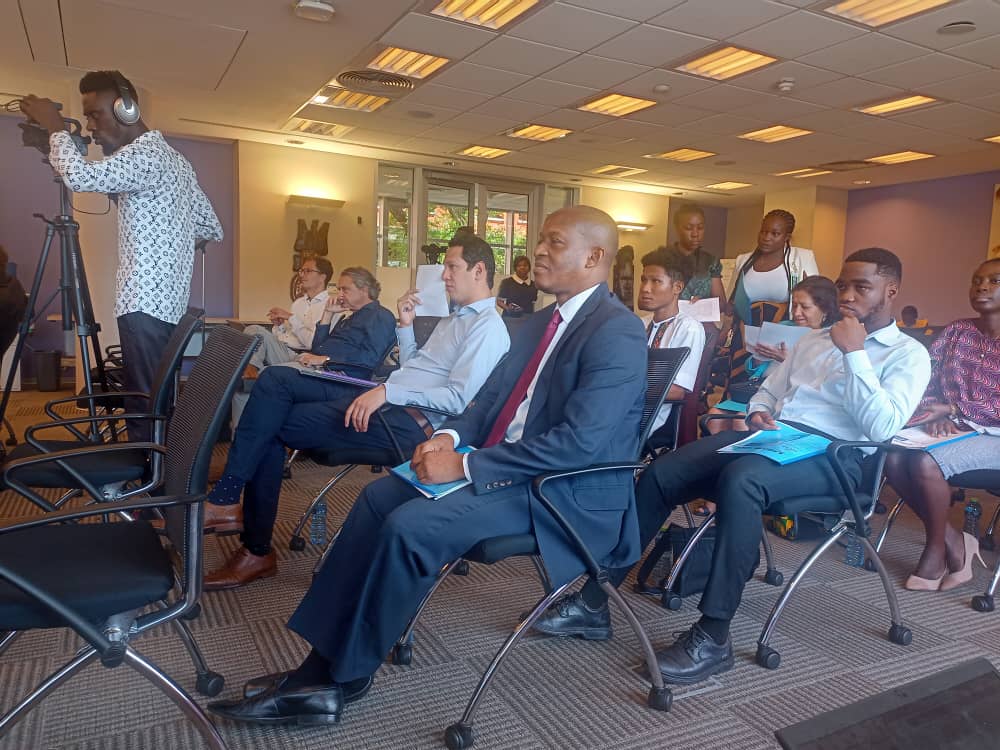By Albert Allotey
Accra, Nov. 30, GNA – The Ghana International Trade and Finance Conference (GITFiC) has stated that it will dedicate the entire year of 2024 to a global campaign with a call to action with the hashtag #A call for GlobalDebtInitiative.
“This call will seek permission from the highest office in Ghana, proceed to the ECOWAS sub-segion, the African Union, and expand to the European Union, the Americas, and Asia,” it said.
It stated: “We at the GITFiC dare say; Africa and the rest of the world are already in a Global Debt Crisis hence the urgent need for a #GlobalDebtInitaitive. Debt interventions should aim to boost liquidity.”
The African Union and the United Nations are expected to partner on this call through our position paper yet to be released after extensive consultations, it added.
The GITFiC made this known in its research paper on: “Global Debt to GDP Post COVID-19 (Sub-Saharan Africa) with a sub-title; “The seemingly effects of COVID-19 on Global Debt to Gross Domestic Product on Economic Output; shedding light on the mechanisms through which these impacts have occurred.”
It recommended that in the face of an unprecedented global health and economic crisis, it is crucial to ensure that all countries have the capacity to safeguard their populations and economics, stating that this might entail more extensive debt service moratorium initiatives and this could be compassed in the call for a #GlobalDebtInitiative.
The study suggested that there was a need to expedite the establishment of bold new initiatives by African countries in collaboration with their creditors; should come up with inventive solutions that go beyond temporary suspensions, such with China, the Paris Club among others.
That, the G20’s proposed common framework for debt treatments is a positive initial step, and that more can be achieved.
It said ideas such as creating a debt exchange mechanism through a Special Purpose Vehicle (SPV), enhancing global liquidity by generating new Special Drawing Rights (SDRs), or improving the utilization of debt swap mechanisms should be reconsidered and adjusted as necessary to overcome political obstacles.
The research paper recommended that African countries should redefine what constituted debt sustainability and that the COVID-19 crisis had revealed the limitations of existing criteria for prudent debt practices and sustainable development.
“These standards need to be improved and adapted, with the input of all parties involved, including creditors and debtors,” it stated.
It said reforming the international debt architecture was essential and that given the significant shifts in global debt dynamics in recent years, the framework for restructuring sovereign debt should align with the current situation.
“An assessment by the IMF of recent debt restructurings showed that they often came too late and were insufficient, frequently failing to restore debtor countries to debt sustainability and market access,” the study noted.
It said enhancing public investment and public financial management was critical and that in Africa’s history of debt, increased borrowing has often not corresponded to more productive spending.
“Governments must take decisive steps to reduce unproductive, non-essential expenditures and low-priority capital investments, including subsidy reductions and streamlining wage bills, and that given limited fiscal space, governments must carefully target the most productive uses for public investment, directing fiscal policies towards sustainable growth and shared prosperity.
The GITFiC said debt suffocation, as recently seen in several economies in Africa could never be said to be self-imposed.

“We at the GITFiC, however, admit that some of these countries already had high debt levels pre-pandemic; most of these debts were sustainable and were within control.
“The impact of the COVID-19 pandemic and the highly commendable quest by governments to place their citizens as priorities initiated several reliefs in the form of stimulus packages and industrial growth incentives, feeding the absolute vulnerable, protective gear, medications, among others, hence the extra borrowing, which ballooned,” it noted.
The GITFiC said: “The era of freebies has come to an end, as the World Health Organiszation declared the pandemic as over. The need for governments to recuperate and steer their various economies towards growth, stability, and sustainability will also mean that citizens will have to adjust to the implementation of fiscal measures to achieve these results.
“These may include the introduction of new levies and taxes, strict compliance in all sectors, and cutting down on expenditures, among other measures.”
GNA